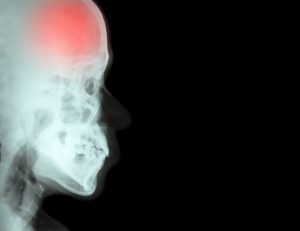
When a weakened or diseased vessel bursts and blood flows into the brain, the buildup of pressure can lead to unconsciousness or sudden death. Generally, ICH occurs in certain areas of the brain, with the most common being the basal ganglia, cerebellum, brain stem, or cortex.
Causes and complications of intracerebral hemorrhage
The most common cause of ICH is hypertension, but in younger patients, ICH results from an abnormally formed blood vessel in the brain. Other causes of ICH include head injury or trauma, ruptured cerebral aneurysm, arteriovenous malformation, use of blood thinners, bleeding tumors, cocaine use, and bleeding disorders. A large risk factor for ICH is older age, and ICH is more commonly seen in males than females.
The most serious complication of ICH is sudden death, but even if ICH is treated there can be lasting complications, too, depending on where it occurred and for how long the brain went without oxygen. ICH-related complications include impaired language skill, fatigue, problems with swallowing, vision loss, difficulty with sensations or movement, pneumonia, cognitive dysfunction, swelling of the brain, seizures, depression and emotional problems, and fever.
Symptoms of intracerebral hemorrhage
Symptoms of ICH include sudden weakness, tingling or paralysis, sudden onset of a severe headache, trouble swallowing, trouble with vision in one or both eyes, loss of balance and coordination, trouble with language skills, nausea and vomiting, apathy, sleepiness, loss of consciousness, and confusion and delirium.
Diagnosis and treatment of intracerebral hemorrhage
To diagnose ICH, doctors will perform a neurological examination along with imaging scans such as a CT scan, MRI, and angiogram. Your doctor will also perform blood tests to identify immune disorders, inflammation, and blood clotting problems which can signify bleeding in the brain.
Treatment must be administered within the first three hours of the symptom onset in order to improve health outcomes. Surgery may be required to relieve pressure and medications may be administered to manage symptoms.
Long-term treatment is geared towards overcoming the damage caused by ICH. This involves managing symptoms or undergoing rehabilitation to regain lost abilities.
Intracerebral hemorrhage prevention and natural remedies
Preventing blood hemorrhages can be done naturally by ingesting natural blood thinners. These remedies are known for reducing the risk of blood hemorrhages thanks to their blood-thinning properties and offer other benefits such as managing cardiovascular risk factors, too.
Natural remedies for blood hemorrhages include garlic, epsom salt baths, gentle head massages, and acupressure for the head. Always speak to your doctor prior to beginning natural remedies, especially blood thinners.